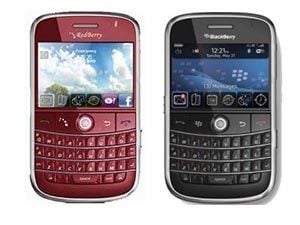Most Americans have never thought twice about intellectual property (IP). If you haven't, I sure don't blame you. IP is a big, seemingly abstract concept that can be hard to wrap your head around.
But I'm here to tell you - it's absolutely critical to your prosperity that you understand what's happening right now.
The U.S. Patent & Trademark Office estimates that the intellectual property associated with 81 industries added $6.6 trillion to global GDP in 2014, the last year that there's data.
That same year, IP-intensive industries accounted for a staggering 38% of U.S. GDP, a figure that may approach 50% in 2019 thanks to the speed at which technology is advancing.
Simply put: Our nation depends on IP.
So does your money.
And yet, a recent CNBC poll found that one in five American companies have reported that Chinese companies have stolen intellectual property from them over the past year.
Damages are hard to calculate, but estimates range from $225 billion to $600 billion annually.
That's not "total"; that's not "over time." That's in one year.
Let me show you why this is so critical and why - love him or hate him - the president absolutely must be tough on China when it comes to this issue...
[mmpazkzone name="in-story" network="9794" site="307044" id="137008" type="4"]
There's a Fundamental Difference in Perception at Work
Chinese officials don't see it this way, of course.
They want the party to continue because accessing valuable intellectual property is what's allowed that nation to come so far and grow so fast over the past 60 years. It's also why China's economy now threatens to overtake our own as the world's most valuable.
Act Now: Our new book could help you quadruple your monthly income, and we're ready to send it to you immediately, for free - but only 1,000 copies are available today. Read more...
Many Americans understand this instinctively because the concept of protecting innovation is as natural to us as watching the sun rise each day.
Many Chinese people, on the other hand, view the concept of intellectual property as a foreign imposition, symbolic of Chinese exploitation in the early part of the 20th century.
The West has its own perspective, of course, and it's that intellectual property generally includes anything resulting from uniquely applied creativity. It can be tangible - meaning you can touch it - or intangible - meaning you can't.
Broadly speaking, there are four types of intellectual property:
- Trademarks cover everything from logos, words, symbols, names, and colors. Walmart, for example, is a trademark. A Chinese company has ripped off Walmart by opening a chain of superstores, "Wumart," that a spokesperson said will be "the Walmart of China."
- Copyrights include software, graphic arts, architecture, books, videos, and databases. Frequently, Chinese companies will produce cars that look and work almost exactly like American or European models. The Chinese-made "Geely GE" looked eerily like a British-made Rolls Royce Phantom, for example.
- Patents are another example of intellectual property, and they cover tangible inventions, ornamental designs on manufactured products, and new plant varieties. Chinese companies have famously copied Apple's iPhone, producing the "HiPhone," which looks almost exactly like the older versions of the iPhone.
- Trade secrets, the final type of intellectual property, are made up of formulas, patterns, and techniques not readily available to the public.
Most intellectual property theft occurs in one of two ways:
- Via dirty tricks like espionage or spying.
- Forced technology transfer via tremendously one-sided partnerships favoring Chinese corporations, especially those acting in concert with the government.
Critical: Our new income book is ready to send to you immediately, for free - learn how to potentially quadruple your monthly income starting today. Click here...
The situation is so bad that more than half of all technology owned by Chinese firms came from or was obtained directly from foreign companies, according to a 2015 paper on the matter by the Minneapolis Fed.
Incidentally, I think that's conservative, and the figure may be as high as 70% - especially if we're talking about military or industrial property used in highly specialized processes and materials.
What makes this so challenging is that "intellectual property" can be anything from manuscripts to engineering specs, from car parts to electronic parts, from graphic arts to digital code, and more.
You can begin to see the scope of the problem here.
Here Are Some (In)famous Examples of IP Theft
Remember Blackberry?
Well, here's the "Redberry," a Chinese knockoff fielded by Unicom on the eve of Research In Motion's long-delayed 2006 Chinese debut there...

Figure 1 China Unicom, RIM, Michael Bissell
Here's a BMW X5 and the Shuanghuan CEO...

Some of the funnier knockoffs I've seen over the years include "Tids" laundry detergent, people wearing "Mike" shoes, eating at "Pizza Huh" and, one of my personal favorites, "Dolce & Banana."

Figure 2 Canyouactually.com
There's also the "Rover case." This one's a big deal.
Tata Motors subsidiary Jaguar Land Rover Automotive Plc. won a landmark legal decision in Chinese court earlier this year that will force Landwind to stop selling a $22,000 knockoff of Land Rover's $60,000 Evoque - and, more importantly, pay damages.

Interestingly, China is beginning to get the message.
Beijing issued a memo last year - the first and most detailed on protecting intellectual property to date - highlighting 38 different punishments for companies stealing IP or otherwise appropriating it, ranging from a cutoff in government funding to restricted access to foreign companies and even a "blackmark" in official databases.
Special Announcement: We're giving away this new income book exclusively to Money Morning readers - claim your copy of "The Book of Crazy Big Income" at no cost today. Click here...
Now for the tough part.
It's easy to view China as the aggressor here in terms of who stole what from whom, but that's a matter of perspective.
Many people are surprised to learn that the Chinese invented paper in 105 CE, gun powder in 1,000 CE, the crossbow as early as 2,000 BCE, umbrellas from around 2,500 BCE, and booze almost 9,000 years ago.
Same deal with the compass, movable type, and silk... they were invented in China centuries before that knowledge would show up in the West.
China could've easily smeared the West with the same allegations of intellectual theft centuries ago.
What's next?
I've spent decades in the Far East, as a businessman, a father, an investor, and as student of history, so I like to think that I've got the tiniest bit of insight here.
Confucian thought plays a huge part in Chinese culture. And that, by its very definition, includes concepts related to mutual responsibility, natural harmony, and moral uprightness.
China is waking up to these things. Perhaps not fast enough for Westerners, and certainly not fast enough for the U.S. government, but the notion that strong intellectual property protection is essential for China's ongoing development is gaining momentum.
So what do we do about it while negotiating teams from both countries slug it out?
Here's what I suggest...
If You Can't Beat 'Em, Go Around 'Em
Forget about the government, and instead, concentrate on the rise of Chinese consumerism. My favorite choice - albeit a very controversial one at the moment - is Alibaba Group Holdings Inc. (NYSE: BABA).
Top line revenue is growing by 56% a year on average, with cloud computing and digital media coming in at 70%-plus. Amazon.com Inc. (NASDAQ :AMZN), by comparison, delivered just 25% year over year.
China's Alibaba retail marketplace accounts for 654 million outlets, roughly twice the U.S. population and an increase of more than 102 million. Mobile users are now 721 million and rising.
This is a numbers game, pure and simple.
By 2020 - less than a year from now - the Chinese e-commerce market may be worth more than all the e-commerce markets of the United States, France, the United Kingdom, Japan, and Germany combined.
Trade war or not, buying Alibaba now is like getting the best of Twitter Inc. (NYSE: TWTR), Netflix Inc. (NASDAQ: NFLX), Paypal Holdings Inc. (NASDAQ: PYPL), Amazon.com Inc. (NASDAQ: AMZN), Alphabet Inc. (NASDAQ: GOOG), and even eBay Inc. (NASDAQ: EBAY) in a single stock worth nearly half a trillion dollars.
BABA is trading at $157.28 a share as I type Thursday morning, and it's clearly under trade-related pressure. But I think that's actually your opening.
I believe shares will rocket higher to $200-plus dollars a share when a trade deal ultimately does get announced.
Dive into Trading's Third Dimension (and You Pocket an Extra Six Figures in 2019)
Traders use all kinds of technical indicators - but for most of them, it still comes down to two dimensions.
Not anymore.
Keith Fitz-Gerald's brand-new breakthrough reveals the stock market in 3D - and spots hidden momentum surges invisible to the naked eye.
When you have this kind of secret weapon, you can easily make an extra $240,000 - or more - in 12 months.
Click here to see it live in action.
Follow Money Morning on Facebook and Twitter.
About the Author
Keith is a seasoned market analyst and professional trader with more than 37 years of global experience. He is one of very few experts to correctly see both the dot.bomb crisis and the ongoing financial crisis coming ahead of time - and one of even fewer to help millions of investors around the world successfully navigate them both. Forbes hailed him as a "Market Visionary." He is a regular on FOX Business News and Yahoo! Finance, and his observations have been featured in Bloomberg, The Wall Street Journal, WIRED, and MarketWatch. Keith previously led The Money Map Report, Money Map's flagship newsletter, as Chief Investment Strategist, from 20007 to 2020. Keith holds a BS in management and finance from Skidmore College and an MS in international finance (with a focus on Japanese business science) from Chaminade University. He regularly travels the world in search of investment opportunities others don't yet see or understand.



